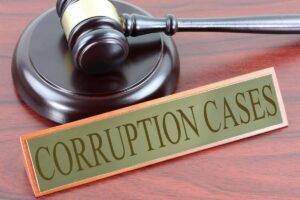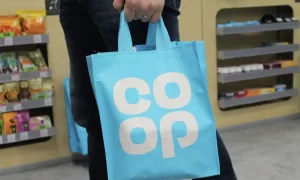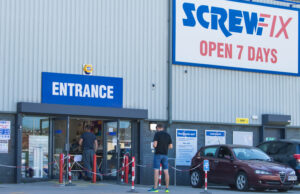Public procurement: disparate progress in the fight against corruption

<?xml encoding=”utf-8″ ?????????>
Public procurement is one of the most corruption-prone government activities, says the United Nations Office on Drugs and Crime. Progress in the fight with unethical behaviour in this area is still inconsistent, and success is impossible without joint efforts of both the state and private sectors.
Corruption is harmful for governments and their citizens, but there’s one form of it that is particularly costly, and this is public procurement. Inviting a civil servant to his preferred sporting event, offering him a low-value gift, or transferring a million dollars to his offshore account influences his decision. The overall price of unfair practices there amount to sky-high figures: in the EU alone, the cumulative cost of corruption in procurement stood at €29.6 billion between 2016 and 2021, shows a study by research organization RAND Corporation. Targeting this process, therefore, becomes a matter of paramount priority if a government wants to ensure fair competition, enhance transparency, and promote equal opportunities.
States across the globe keep trying to curb the problem, with countries with a long history of corruption being the most active. A notable example here is Latin America, which has already become a hotbed for US Foreign Corrupt Practices Act (FCPA) enforcement, and where local governments are actively introducing new measures (like Brazil mandating that public bidders for over 200 million reais (ca. 41M USD) have an effective compliance programme, or Colombia expanding the criteria to determine which non-financial companies must adopt transparency and business ethics programmes, to name a few).
For them, and for other states, the transparent procurement process is not only a moral imperative but also a crucial factor for attracting foreign investment and fostering economic development. This is not surprising, as the IMF finds “a strong correlation between lower levels of corruption and long-term improvements in GDP per capita and in human development indices”. Panelists of the fund also emphasize that the costs are not only economic in nature: “Corruption also contributes to the loss of public trust in government, higher levels of inequality in political influence, the deterioration of public values and, ultimately, to the diminution of citizens’ well-being or quality of life”. And while states focus on eliminating this hidden tax on growth and investment, the other side, namely the private sector, tries to keep up with them.
Fair procurement requires action from both sides
Procurement is a co-operative process, where actions of one induce efforts of others. In this regard, suppliers see their main motivation to combat corruption as the need to keep up with state efforts: failure to align with them can result in legal consequences, reputational damage, and loss of business opportunities. In this fight, they rightly expect their efforts to be supported and appreciated by their major customers: “Companies want to see governments “walking the talk” as well by supporting company anti-corruption efforts with appropriate incentives, enforcing laws effectively, and themselves operating with the highest standards of integrity,” reads OECD’s 2020 report on corporate anti-corruption compliance drivers.
It is common for governments, therefore, to endorse ethical behaviour: requirements to have anti-corruption measures in place can be found in state procurement procedures almost all over the world. At that, active and open state involvement in selecting a reliable supplier shows its willingness to promote fair practices and foster integrity, and often goes beyond formal requirements, as seen in the example below.
Recently, the Anti-Corruption Office of Argentina has enabled the registration and use of the Registry of Integrity and Transparency of Companies and Entities (RITE) for state suppliers. The registry’s platform was created with the active participation of suppliers, and has received a broad positive response among them: “It is appropriate to collaborate reciprocally for the dissemination and adoption of actions that encourage strengthening the culture of integrity and create incentives that recognize performance aligned with good governance and reference standards in the matter,” commented the Argentine Aircraft Factory “Brig. San Martín” SA (FAdeA), one of the participants in the project.
The main basis for anti-corruption measures in the company is its own Integrity Programme designed under the requirements of Argentinian Act on Criminal Liability for Companies. It is not formally aligned with internationally recognized standards, which makes it less solid, but said co-operation with the government adds more weight to both the company and those who co-operate with it.
There’s no guarantee of zero corruption
So, significant efforts are being made to address the problem. However, progress is still uneven, and one reason for this is the very nature of the process. Transparent and fair procurement implies that each party, whether contractor or purchaser, will make every effort to ensure compliance. At the same time, each of them has its own challenges: for governments they range from poor enforcement of integrity safeguards and threats to the rule of law to monetary and humanitarian crises, while companies struggle with lack of awareness, complex compliance environment and many others. The overlap between these issues makes the fight against corruption much more difficult: the moment one of them caves in, the whole development will stall.
No one is immune to a fall, be it an advanced economy in a favourable economic union or a small country just embarking on the path of economic development. We saw it in 2022, a difficult year for most countries in the world. Consequently, attention of governments was diverted, and the 2022 Corruption Perceptions Index showed a decline or stagnation in anti-corruption measures around the world, fromTunisia to one of the world’s leaders, Finland. As for the public procurement sector, the situation here is trickier, and even a country’s high anti-corruption rating cannot guarantee crystal-clear integrity in public procurement. An illustration of this is Latvia, which rose in the overall ranking in 2022, but in the same year uncovered a fraudulent tendering procedure, with misappropriated €780,000 in EU funds.
Collective action as a response
As we have seen above, progress in the fight against corruption in public procurement is uneven and uncertain. What does success depend on? One answer is collective and coordinated approaches, together referred to as “collective action”, which increases the impact and credibility of individual action, brings vulnerable individual players into an alliance of like-minded organizations and levels the playing field between competitors, explains the World Bank. Every effort counts here, whether it is a full-fledged joint programme, as in the example of the Argentine registry, or a single action to address existing deficiencies and improve the overall anti-corruption environment, as the following example shows.
In December 2015, banknote press manufacturer KBA-NotaSys, today Koenig & Bauer Banknote Solutions, reported itself to the Office of the Attorney General of Switzerland after it uncovered evidence that bribery had taken place in one of the countries of its presence. Switzerland’s first case of self-reporting with regard to corruption resulted in a settlement with a symbolic fine of CHF 1 and the disgorgement of profits of CHF 35 million.
Unprecedented in Swiss practice, the amount of the fine for the violation emphasised the importance of open cooperation between the private and state sectors. KBA-NotaSys admitted the deficiency in its operations and did everything possible to remedy it. The company was a co-founder of the Banknote Ethics Initiative, which brings together industry suppliers and has garnered the open support of a number of central banks. Its commitment also included the deployment of best practices in the fight against corruption, by supporting other stakeholders through the creation of an integrity fund. Today, Koenig & Bauer, owner of the Banknote Solutions subsidiary, has adopted theISO37001 anti-bribery standard, which includes regular impartial audits.
This case, as well as similar laws in countries such as the UK and the USA, suggest a tendency towards the global homogenization of the fight against corruption – not only among states, but also in state-private relations. Companies recognize the importance of implementation of anti-corruption measures for the greater good, and so do governments by opting for reliable partners. Although common efforts in this regard are still quite disparate, the path to a more accountable and efficient procurement sector has already been trodden.




